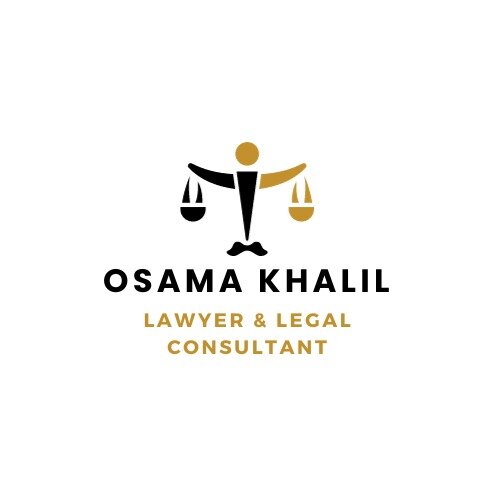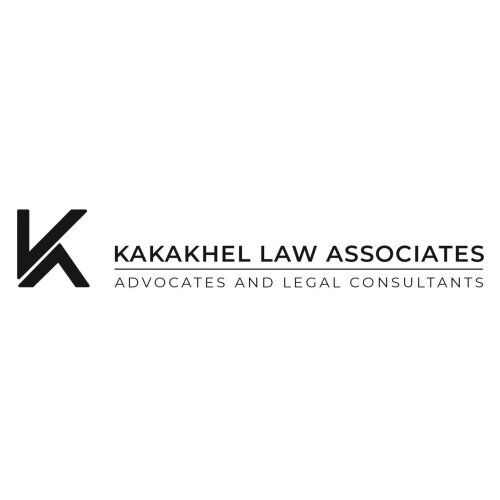Best Sanctions & Export Controls Lawyers in Peshawar
Share your needs with us, get contacted by law firms.
Free. Takes 2 min.
List of the best lawyers in Peshawar, Pakistan
About Sanctions & Export Controls Law in Peshawar, Pakistan
Sanctions and export controls law refers to the group of regulations and legal frameworks that govern the transfer, sale, or export of goods, services, and technology across borders, particularly with respect to countries, entities, or individuals subject to government-imposed restrictions. In Peshawar, Pakistan, these laws are especially important due to the city’s proximity to international borders, dynamic commercial activity, and sensitive geopolitical climate. Sanctions may be imposed by international organizations like the United Nations, or through national legislation, restricting dealings with specific countries or entities. Export controls are legal measures that regulate the export of certain goods, particularly those with potential military, security, or dual uses, in order to protect national interests and comply with international obligations.
Why You May Need a Lawyer
People and businesses in Peshawar may require legal help concerning sanctions and export controls for a variety of reasons. Situations that commonly need legal advice include:
- Exporting goods or technology that may be subject to international controls - Doing business with entities or individuals located in countries subject to Pakistani or international sanctions - Responding to investigations or enforcement actions by government agencies - Facing border seizures or customs inquiries regarding potentially controlled items - Unsure about compliance with international export regulations - Conducting due diligence in international commercial transactions - Needing guidance on updated lists of restricted or sanctioned entities - Handling violations related to embargoes or trade restrictions - Navigating the complexities of dual-use items (products with both civilian and military applications) - Providing staff training and compliance policies regarding export and sanctions controls
A lawyer specializing in sanctions and export controls will be able to help interpret relevant regulations, advise on compliance, assist in obtaining required permissions or licenses, and represent you in any legal proceedings.
Local Laws Overview
In Peshawar, Pakistan, several legal instruments govern the field of sanctions and export controls. At the heart of these regulations are Pakistan’s commitments as a member of the United Nations, which require compliance with Security Council sanctions. Locally, the Export Control on Goods, Technologies, Materials and Equipment related to Nuclear and Biological Weapons and Their Delivery Systems Act, 2004 (commonly called the Export Control Act 2004) addresses controls over sensitive exports. Customs laws also play a significant role, administered by the Pakistan Customs and Federal Board of Revenue, overseeing the movement of controlled goods and enforcing prohibitions at the borders.
Key aspects to be aware of include:
- Prohibition on exports to certain individuals, organizations, or countries - Mandatory licensing of sensitive dual-use or military goods - Criminal and civil liabilities for violating export laws or sanctions - Regular updates to lists of sanctioned entities and commodities - International obligations that may change periodically, affecting local laws - Border controls in Khyber Pakhtunkhwa, especially considering cross-border activity with Afghanistan
Understanding the intersection of federal, provincial, and international rules is crucial for anyone dealing with international trade from Peshawar.
Frequently Asked Questions
What are sanctions, and who imposes them in Pakistan?
Sanctions are legal restrictions placed on trade, finance, or travel with specific countries, entities, or people. In Pakistan, sanctions may be imposed by the government, especially in compliance with United Nations Security Council resolutions or in accordance with domestic national security interests.
What are export controls?
Export controls are regulations that restrict or require permits for exporting specific goods, technologies, or services, particularly those with military, weapons, or dual-use applications, to certain countries or entities.
Do I need a special license to export goods from Peshawar?
Yes, for certain controlled goods, especially those with dual-use or military capability, you must apply for and obtain an export license from relevant authorities in Pakistan, such as the Strategic Export Control Division.
What happens if I violate sanctions or export control laws?
Penalties for violations can include fines, revocation of licenses, seizure of goods, and even imprisonment, depending on the severity and type of infraction.
How do I find out if a particular item is restricted for export?
You can consult schedules and lists published by the Federal Board of Revenue, Pakistan Customs, and relevant government ministries, or seek legal advice to help interpret the regulations.
Are there specific regulations for border cities like Peshawar?
Yes, border cities often have stricter enforcement and additional checks, particularly due to proximity to sensitive borders. Local customs offices implement thorough inspections and vetting for international shipments.
Can I appeal a penalty or seizure by customs?
Yes, you have a right to challenge penalties or seizures in administrative tribunals or courts. Consulting with a qualified lawyer can greatly help your chances of success.
What steps should I take if approached by authorities for an investigation?
You should seek immediate legal advice, cooperate respectfully with authorities, and avoid making statements or admissions without consulting your lawyer.
How often do export control laws change?
Export control and sanctions laws can change rapidly, particularly in response to international events or policy shifts. It is vital to stay updated or consult with a specialist before exporting sensitive goods.
Is there a difference between international and Pakistani sanctions?
Yes, international sanctions often stem from United Nations or other multinational bodies, while Pakistan may also impose its own sanctions in the interest of national security. Both must be observed when conducting international trade from Peshawar.
Additional Resources
Several resources and organizations are available for assistance and information:
- Federal Board of Revenue (FBR): Oversees customs and enforcement of relevant laws - Strategic Export Control Division, Ministry of Foreign Affairs: Manages export control licensing and compliance guidance - Pakistan Customs: Administers border control and enforcement of export restrictions - United Nations Sanctions Committee: Publishes up-to-date sanctions lists relevant to Pakistan - Ministry of Commerce: Provides guidelines and updates on trade restrictions and export policies - Pakistan Business Council and local Chambers of Commerce in Peshawar: May offer guidance or direct support for businesses
Next Steps
If you believe you require legal assistance in matters relating to sanctions or export controls in Peshawar, Pakistan, consider the following steps:
- Gather all relevant documentation related to your export, shipment, or business activities - Check current lists of restricted goods and sanctioned entities - Seek guidance from official government resources where possible - Consult with a qualified lawyer specializing in sanctions and export controls law - Ensure clear communication with any government authority that contacts you, ideally through your legal representative - Stay updated on legal changes that may impact your business or personal affairs - If you run a business, provide regular training to staff to ensure compliance with the latest laws and policies
Prompt and informed action will help avoid legal liabilities and ensure smooth international trade or business activities related to sanctions and export controls in Peshawar.
Lawzana helps you find the best lawyers and law firms in Peshawar through a curated and pre-screened list of qualified legal professionals. Our platform offers rankings and detailed profiles of attorneys and law firms, allowing you to compare based on practice areas, including Sanctions & Export Controls, experience, and client feedback.
Each profile includes a description of the firm's areas of practice, client reviews, team members and partners, year of establishment, spoken languages, office locations, contact information, social media presence, and any published articles or resources. Most firms on our platform speak English and are experienced in both local and international legal matters.
Get a quote from top-rated law firms in Peshawar, Pakistan — quickly, securely, and without unnecessary hassle.
Disclaimer:
The information provided on this page is for general informational purposes only and does not constitute legal advice. While we strive to ensure the accuracy and relevance of the content, legal information may change over time, and interpretations of the law can vary. You should always consult with a qualified legal professional for advice specific to your situation.
We disclaim all liability for actions taken or not taken based on the content of this page. If you believe any information is incorrect or outdated, please contact us, and we will review and update it where appropriate.









